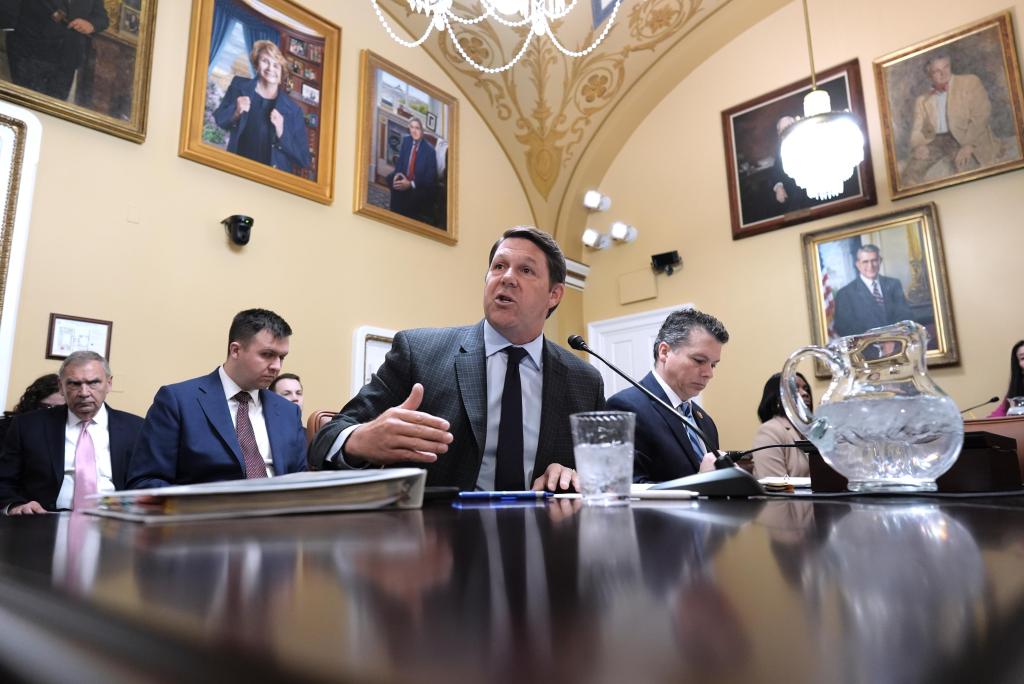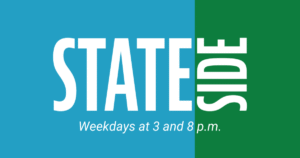
House Republicans Push for Budget Approval Amidst Conservative Concerns
In a high-stakes political maneuver, House Republicans, spurred by President Donald Trump, are striving to advance their budget framework. This move, however, faces skepticism from conservative GOP members worried about the potential debt increase due to proposed tax breaks without substantial spending cuts.
Speaker Mike Johnson is challenging dissenters within his party to oppose Trump’s ambitious “big, beautiful bill,” which is pivotal to his agenda of tax reductions, mass deportations, and a leaner federal government. Johnson’s slim majority leaves little room for Republican defections, especially with Democrats uniformly opposed.
During a Tuesday night fundraising event, Trump urged Republicans to support the budget, saying, “You just got to get there — close your eyes and get there.” His call to action was met with applause as he emphasized, “Stop grandstanding!”
Advancing the budget would be a significant achievement for Johnson, who aimed to push the resolution forward by the upcoming congressional spring recess. However, failure to do so, particularly amidst economic instability from Trump’s trade policies, could be a setback for the GOP’s Washington agenda.
Trump’s recent suspension of his aggressive tariff measures provided some relief to financial markets, which had been unsettled by fears of a recession.
“We are at a critical inflection point, with a generational opportunity,” commented Rep. Jodey Arrington, R-Texas, at a pre-vote rules meeting.
Despite this, House GOP conservatives, including those who recently met with Trump, remain uneasy about the Senate GOP’s budget plan. They argue it lacks the necessary spending cuts to curb rising deficits, a sentiment echoed by Rep. Chip Roy, R-Texas, who criticized the plan on social media, stating, “The Math Does Not Add Up.”
The budget process is expected to span several weeks as the House and Senate work to reconcile their differences, leading to more votes in the coming months.
While Democrats lack the numbers to block the package, they have expressed concerns. Rep. Brendan Boyle, a leading Democrat on the budget committee, warned that the GOP’s proposed budget cuts could severely impact Medicaid and other crucial programs.
The Republican budget aims to extend the 2017 tax cuts from Trump’s first term and introduce new ones, potentially costing $7 trillion over ten years. It includes provisions for significant funding increases for Trump’s deportation initiatives and the Defense Department, balanced by substantial cuts to domestic spending programs.
The Senate’s approach to budgeting, which excludes the cost of maintaining the 2017 tax cuts from new spending calculations, has further frustrated House conservatives.
Notably, two Republican senators opposed their budget package, citing concerns over its financial implications. Sen. Susan Collins of Maine objected to Medicaid cuts, while Sen. Rand Paul of Kentucky criticized the fiscal strategy as flawed.
The budget proposal also calls for raising the nation’s debt limit to accommodate further borrowing. The House version suggests a $4 trillion increase, whereas the Senate proposes $5 trillion to avoid revisiting the issue before the 2026 midterm elections.
Amid ongoing trade tensions, House Republicans included a procedural measure to block any disapproval of Trump’s tariffs, as undertaken by the Senate.
Originally Published:






